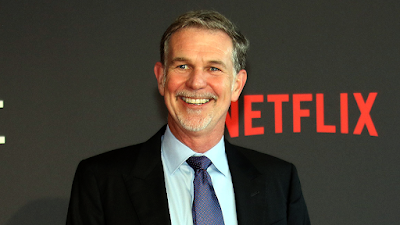 |
| Source: Variety.com |
Musings about Leadership, Decision Making, and Competitive Strategy
Friday, April 22, 2022
How Subscriber Declines May Affect the Netflix Culture
Tuesday, April 19, 2022
Successful Mentor-Mentee Relationships
 |
| Source: Monterail.com |
Kellogg Insight features a very good article this week on how to be a better mentor (and mentee). I found the tips to be quite useful. One of the most interesting points made in the story centers on research by Kellogg Professor Brian Uzzi and his co-authors. Here is the excerpt:
An analysis of the careers of more than 37,000 scientist mentors and mentees confirmed that having a mentor who is at the top of their game improves a mentee’s odds of ultimately becoming a superstar themselves by nearly sixfold.
Tuesday, April 12, 2022
Rise in Perfectionism Will Damage Our Ability to Innovate
 |
| Source: Skill Collective |
London School of Economics Professor Thomas Curran and York St. John Univesrity Professor Andrew Hill have published an important new study about perfectionism. They find that perfectionism is on the rise among young people in the UK, USA, and Canada. They attribute some of this rise in perfectionims to "anxious, overly involved, and/or overly controlling forms of parenting." In short, "increases in parental expectations and parental criticism offer the most plausible explanation for rising perfectionism to date." The scholars stress that they are not blaming parents. They believe larger systemic and structural forces are creating this pressure.
The rise in perfectionism creates a host of concerns, including about young people's well-being in the face of such pressures. However, I'd like to also stress the implications for innovation in our organizations. Innovation requires the ability to test out new ideas, experiment and prototype, and iterate quickly based on feedback. Naturally, such experimentation comes with a fair dose of failure. My concern with the rise in perfectionism is that young people will be afraid to expose their ideas to others and open themselves up to constructive feedback. They will wait to refine their ideas, in hopes of making them perfect, before testing them out with others. This reticence to put ideas out there before they are "complete" may lead to lost opportunities to improve those ideas, and it may slow down the process of innovation substantially. We need young people to be willing to share their incomplete, "minimally viable" concepts with others, and then to build upon and improve those concepts based on the input from others...without constant fear of failure.